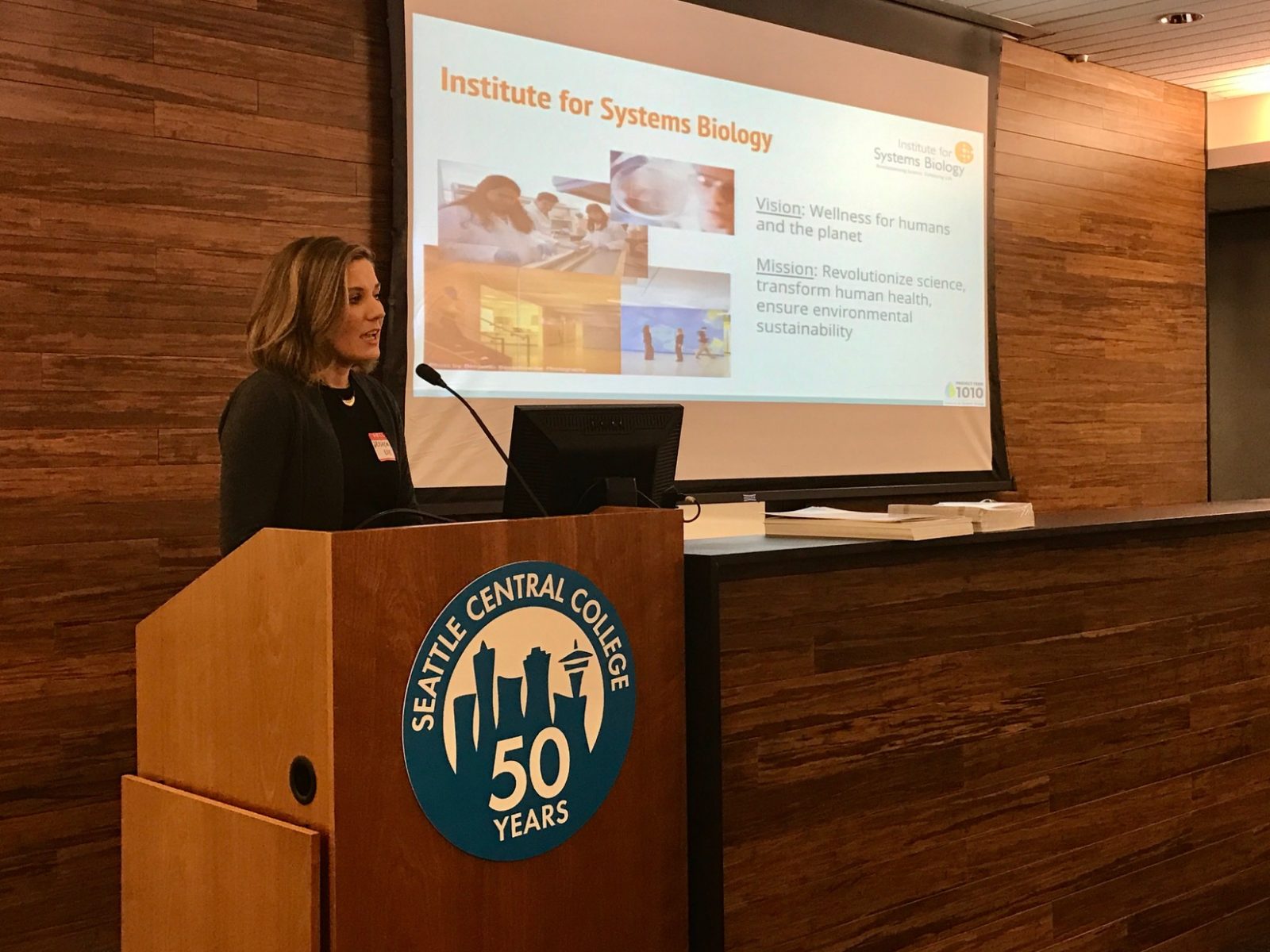Earth To Dinner 2 at Seattle Culinary Academy
 isbscience.org/news/2017/01/13/earth-dinner-2-seattle-culinary-academy/
isbscience.org/news/2017/01/13/earth-dinner-2-seattle-culinary-academy/
ISB participated in Earth To Dinner 2 on Jan. 12 at Seattle Culinary Academy. This was a follow-up event for the Dec. 12 Earth to Dinner event at ISB. (Read more…)
The theme was sustainable food/agriculture and urban design. Panelists for the evening included:
Grace Kim: Architect and co-founder of Schemata Workshop
Liz Fikejs: Conservation Program Manager, Seattle Public Utilities
Jessica Day: Project Manager, Project Feed 1010
Dean DeCrease: Principal of Festivore Design Works and Chief Governing Officer & Board Chair, Central Co-Op
Julia Sanders: Deputy Director, Global Ocean Health
Watch the Facebook Live video:
About Earth To Dinner: In December 2015, 195 global leaders came together to adopt the historic Paris Agreement – the world’s first comprehensive climate agreement. GOOD, in partnership with the #EarthTo coalition (100+ partners strong), has created the #EarthToDinner (earthtodinner.org) climate conversation dinner series to keep climate action on the table.





